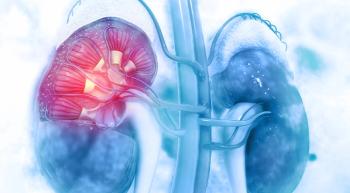
Finding balance to detect and treat prostate cancer without overtreatment is important for patients.

Finding balance to detect and treat prostate cancer without overtreatment is important for patients.

PARP inhibitors are not only expanding the field of prostate cancer but they're giving men another option for life after cancer.

After a recommendation against routine prostate cancer screening, rates of early disease declined while the incidence of advanced disease rose. The trend highlights the difficult balance between screening and potential overtreatment.

Primed to knock out cells vulnerable due to DNA-repair problems, PARP inhibitors are ushering in a targeted-drug era in prostate cancer treatment.

For some patients with metastatic kidney cancer, undergoing surgery after targeted or immune therapy sparks better health outcomes.

Patients with advanced or metastatic bladder cancer, after responding to initial treatment with chemotherapy, may preserve their health improvements by starting immunotherapy immediately.

After treatment for bladder or prostate cancer, many survivors confront permanent sexual side effects. The good news is that treatments and psychological support are available.

A growing number of treatments are available to men whose prostate cancer has spread and become resistant to hormonal therapy.

A woman shares her late husband’s journey with advanced penile cancer to help others receive a diagnosis early, when the disease is still highly treatable and even curable.

After enjoying visits from therapy dogs during treatment for testicular cancer, a student pilot decides to volunteer to transport pets needing rescue, shelter or adoption.

Forward Momentum, a coalition launched by a biopharmaceutical company and three partners, focuses on the health disparities faced by Black men with prostate cancer.